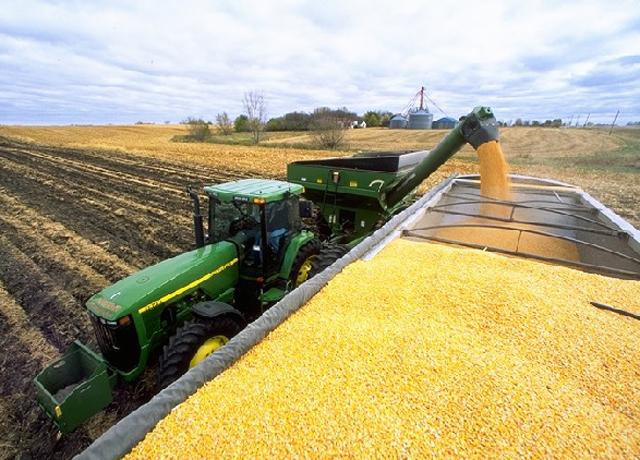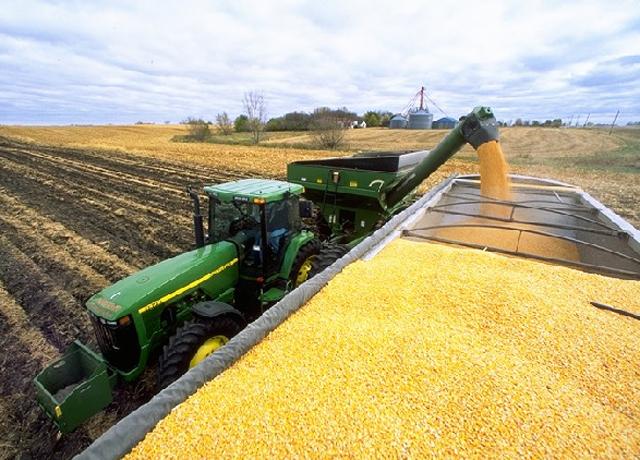Ag Policy Blog
US Ag Trade Officials Reject Mexican Proposals for Biotech Corn
U.S. officials and U.S. corn farmers find themselves in the middle of a familiar phrase -- a Mexican standoff.
In a news release Monday, U.S. Department of Agriculture Under Secretary for Trade and Foreign Agricultural Affairs Alexis Taylor and Office of the U.S. Trade Representative Chief Agricultural Negotiator Doug McKalip issued a joint statement citing that Mexico's government is putting potentially billions of dollars in bilateral agricultural trade at risk with a proposal that is not based on science.
Taylor and McKalip had met with Mexican government officials regarding President Andres Manuel Lopez Obrador's decree to phase out the use and importation of genetically engineered corn and other products by Jan. 31, 2024.
Obrador's government has proposed to eliminate a proposed ban on imports of corn for livestock feed, but Mexico proposed a ban on biotech corn for human consumption -- tortillas, chips and other similar products. The Biden administration now has formally rejected that proposal.
Taylor and McKalip -- each recently confirmed to their respective positions -- effectively repeated that the U.S. position remains the same over the latest proposed modifications to the decree by Obrador.
"U.S. officials continue to engage with our Mexican counterparts at the highest levels to address our grave concerns with Mexico's biotechnology policies," the pair stated.
Taylor and McKalip credited the talks between the Biden administration and Mexican officials following Agriculture Secretary Tom Vilsack's trip to Mexico in November.
"However, these changes are not sufficient and Mexico's proposed approach, which is not grounded in science, still threatens to disrupt billions of dollars in bilateral agricultural trade, cause serious economic harm to U.S. farmers and Mexican livestock producers, and stifle important innovations needed to help producers respond to pressing climate and food security challenges," the pair stated.
Taylor and McKalip added that their latest trip to Mexico City "underscores the importance of resolving this issue and we conveyed our continued commitment to strengthening our economic and trade relationship with Mexico."
They reiterated their concerns and added, "We appreciate our Mexican counterparts' time and dedication in trying to hammer out a solution. We made it clear today that if this issue is not resolved, we will consider all options, including taking formal steps to enforce our rights under the U.S.-Mexico-Canada Agreement."
So the standoff remains.
The National Corn Growers Association (NCGA) and the Biotechnology Innovation Organization (BIO) credited Taylor and McKalip for rejecting Mexico's latest proposal.
P[L1] D[0x0] M[300x250] OOP[F] ADUNIT[] T[]
"This is significant development and good news for corn growers," said NCGA President Tom Haag. "Secretary Vilsack and USTR Ambassador (Katherine) Tai are making it crystal clear that they are going to make the Mexican government abide by what it agreed to under USMCA. These leaders understand that banning biotech corn would deliver a blow to American farmers and exacerbate current food insecurity in Mexico by drastically raising prices for corn, basic foods and other critical products derived from corn in the Mexican economy."
USDA Opens Enrollment for Disaster, Pandemic Program
Farmers who may have missed some of the earlier assistance programs have a chance to apply for a couple of USDA programs that started enrollment on Monday.
The Emergency Relief Program (ERP) Phase Two if you experienced revenue losses from eligible natural disasters in 2020 and 2021. ERP Phase Two is for producers who didn't receive assistance from ERP Phase One. Keep in mind, this new ERP does not include any disasters from 2022.
Farmers might also be eligible for the Pandemic Assistance Revenue Program (PARP) if you experienced revenue losses in calendar year 2020. PARP is addressing gaps in previous pandemic assistance, which was targeted at price loss or lack of market access, rather than overall revenue losses.???
Applications for both are due June 2, 2023, and you can apply for both during your same appointment with USDA's Farm Service Agency (FSA).
Learn more about ERP and PARP https://www.farmers.gov/…
New Dairy Aid Also at USDA
USDA on Monday also announced the details of additional assistance for dairy producers, including a second round of payments through the Pandemic Market Volatility Assistance Program (PMVAP) and a new Organic Dairy Marketing Assistance Program (ODMAP). The update to PMVAP and the new ODMAP will enable USDA to better support small- and medium-sized dairy operations who weathered the pandemic and now face other challenges.
"The Biden-Harris administration continues to fulfill its commitments to fill gaps in pandemic assistance for producers. USDA is announcing a second set of payments of nearly $100 million to close-out the $350 million commitment under PMVAP through partnerships with dairy handlers and cooperatives to deliver the payments.," said USDA Under Secretary for Marketing and Regulatory Programs Jenny Lester Moffitt. "USDA is also announcing new assistance targeting small to medium size organic dairy farmers to help with anticipated marketing costs as they face a variety of challenges from weather to supply-chain challenges."
PMVAP helps dairy farmers who received a lower value due to market abnormalities caused by the pandemic and ensuing Federal policies. The program pays for fluid milk sales between 5 million and 9 million pounds from July through December 2020. This level of production was not eligible for payment under the first round of the PMVAP. Payment rates will be identical to the first round of payments, 80% of the revenue different per month, on fluid milk sales from 5 million to 9 million pounds from July through December 2020.
More information about the PMVAP production cap increase is available at www.ams.usda.gov/pmvap
Organic Dairy Marketing Assistance Program
The new ODMAP, to be administered by USDA's Farm Service Agency (FSA), is intended to help smaller organic dairy farms that have faced a unique set of challenges and higher costs over the past several years that have been compounded by the ongoing pandemic and drought conditions across the country. Many small organic dairy operations are now struggling to stay in business and FSA plans to provide payments to cover a portion of their estimated marketing costs for 2023. Final spending will depend on enrollment and each producers projected production, but ODMAP has been allocated up to $100 million.
Details about the Organic Dairy Marketing Assistance Program will be available and updated at www.farmers.gov
Chris Clayton can be reached at Chris.Clayton@dtn.com
Follow him on Twitter @ChrisClaytonDTN
(c) Copyright 2023 DTN, LLC. All rights reserved.





Comments
To comment, please Log In or Join our Community .